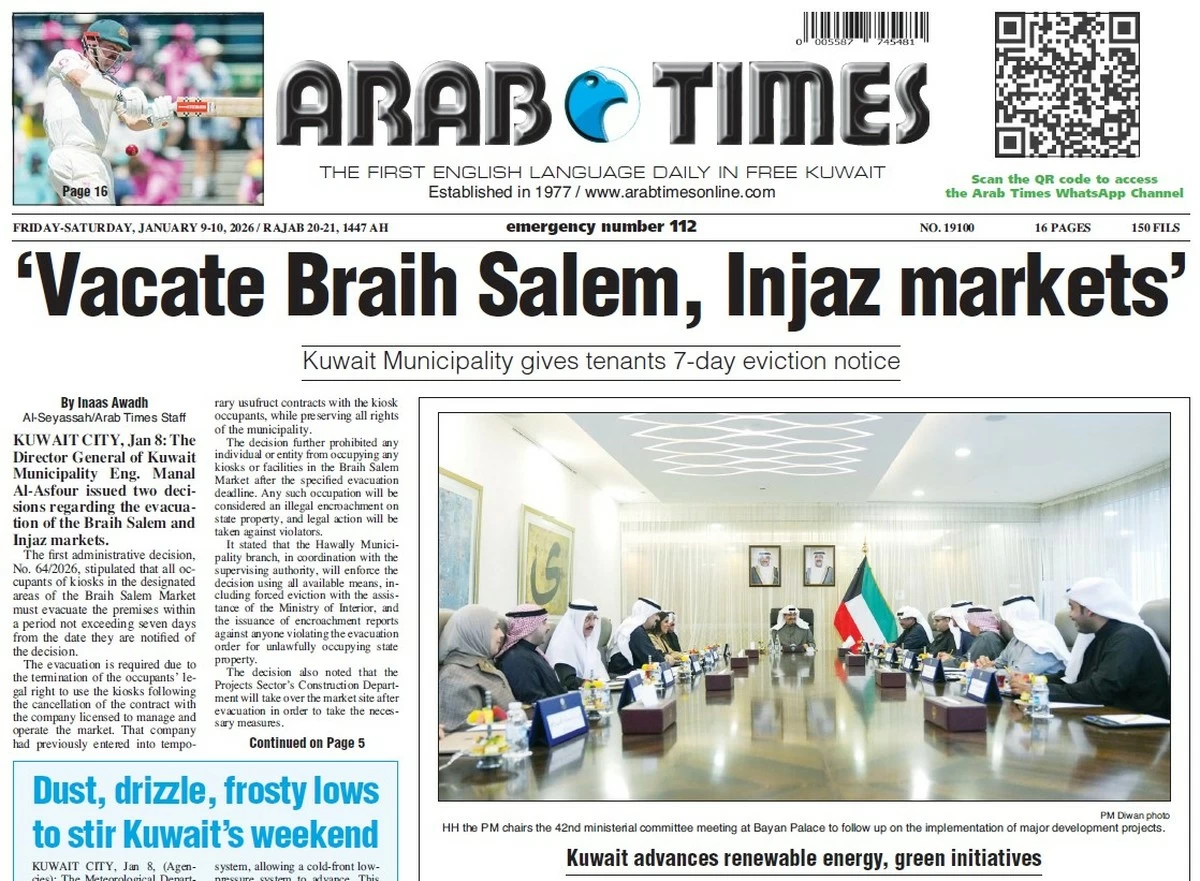30/12/2015
30/12/2015
 Yusuf Awadh Al-Azmi
Yusuf Awadh Al-Azmi| It is impossible for any rational mind to be distinctly convinced by irrational economic reforms, especially if the proposed reforms bear the actual impact of economic mistakes or fundamentals of the reform plans. |
I am talking about the recent leakage of horrific unfair recommendations by one of the committees in charge of preparing economy reform plans. Strangely, the information leaked about the proposed recommendations were published by a prominent local newspaper, and the move is understood to be an issue of testing the public’s pulse — trial balloon. I perused the recommendations, and it felt like they are looking at issues with a single eye which has dust on it.
Items of the leaked recommendations put most of its weight on the simple citizen, besides the fact that it did not provide anything to be perceived as real economic reform plan. Economic reform usually starts with the appointment of suitable and sincere people to push it through, and these people should be familiar with the faculties of economy, and experience in the field for a considerable period to be able to know the ‘ins and outs’ of our economy.
Economic reforms should commence with identification of past and current sources of revenue, the mode of spending the revenue, and differentiation of what is economically correct and what is not. It is essential to determine the actual financial ability of the State before undertaking any measures toward economic reforms, and the process involves listing the local financial assets and other local economic assets for evaluation to determine whether or not they can withstand pressure, including financial crisis.
Oil is the main source of income in the country but oil market has suffered tremendous price drop in recent months, which before any other reforms, prompts evidence of its effect on the State expenditure that is generally linked to foreign assets and present economic performance. There should be periodic economic review of financial strength and ability of the country to remedy economic emergency by putting in place well-read solutions without causing any economic fuss. The solution should be incorporated in the short and long term plan.
Engaging in economic reforms needs periodic evaluation of inflation rate, buying the strength of local currency and continuous observation of GDP, which comes hand in hand with strengthening the middle class and not just a rational distribution of wealth. Moreover, investment attractions and incentives are imperative to enhance GDP while incorporating citizens in the global economic system to make them productive to perform their obligations to the State effectively.
There are many simple solutions for a wealthy country with small population, but it is important to deal wisely and pragmatically with the reality in terms of the management of its wealth and picking up lesson or two from countries that have similar economic situation without ignoring the national manpower, which is able to perform obligations and duties efficiently in this aspect. Just as a citizen bears part of his responsibility in difficult economic times, he also has the right to know the manner in which the country’s wealth is managed, and reassured that the wealth is being managed in an appropriate way.
Otherwise, it is irrational to demand citizens to perform and fulfill their duties at a time when their rights are ignored. Optimism and confidence are the motto of the advance countries while dealing with crisis. Therefore, we pray to the Almighty Allah to preserve peace, security and stability for Kuwait and its people.
twitter@alzmi1969


